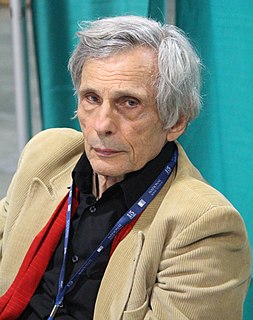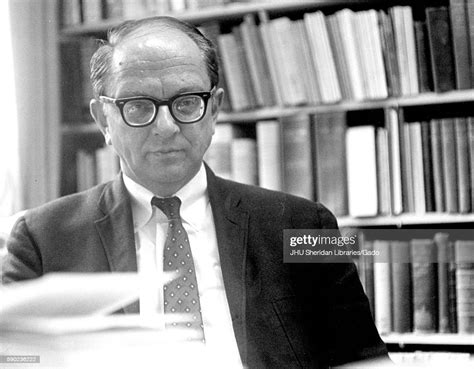A Quote by Allen C. Guelzo
We still know so little about how the brain interacts with the body chemistry or, for that matter, whether we should be talking about the brain or the mind, that it would be perilous to hazard any guess about the way Abraham Lincoln's biological health may or may not have affected him. Of course, we don't have Lincoln on hand to ask him directly; but even if we did, we still might not be able to make sense of how all the parts worked together.
Related Quotes
No president in history has been more vilified or was more vilivied during the time he was President than Lincoln. Those who knew him, his secretaries, have written that he was deeply hurt by what was said about him and drawn about him, but on the other hand, Lincoln had the great strength of character never to display it, always able to stand tall and strong and firm no matter how harsh or unfair the criticism might be. These elements of greatness, of course, inspire us all today.
There's been more written about Lincoln than movies made about him or television portraying him. He's kind of a stranger to our industry, to this medium. You have to go back to the 1930s to find a movie that's just about Abraham Lincoln. I just found that my fascination with Lincoln, which started as a child, got to the point where after reading so much about him I thought there was a chance to tell a segment of his life to to moviegoers.
It is very hard to answer the oft-posed questions about how Abraham Lincoln would respond to some current condition. My favorite story on that count is that the late great Lincoln scholar Don Fehrebacher was asked, during the struggles over bussing for racial balance a few years ago, what Lincoln would say about "bussing" and he thought awhile and then answered : "what Lincoln would say would be: "What's a bus?"
Until the early 90s, when I was working on a project about the idea of free will in American philosophy. I knew that Lincoln had had something to say about "necessity" and "fatalism," and so I began writing him into the book. In fact, Lincoln took over. I wrote instead 'Abraham Lincoln: Redeemer President,' in 1999, and I've splitting rails with Mr. Lincoln ever since. If there's a twelve-step process for this somewhere, I haven't found it yet.
It just seemed like I would. I mean, I didn't know him on a daily basis -- far from it. But, in a way, I don't even feel right being here without him. It's so difficult to really believe he's gone. I still talk about him like he's still here, you know. I can't figure it out. It doesn't make any sense.
I am asked often about Abraham Lincoln's mistakes and faults; he certainly made some mistakes. I have chapter in President Lincoln about the Powhatan affair that was a royal screw-up in the early days - right alongside the Sumter affair. Lincoln signed letters he should not signed, and the ship was sent to two places at one under two captains etc. Fortunately, no great harm. Lincoln took the blame and did not do anything like that again.
I assume, gladly, that in the allocation to America of remarkable leaders like Thomas Jefferson, George Washington, and Abraham Lincoln, the Lord was just as careful. After all, if you've got only one Abraham Lincoln, you'd better put him in that point in history when he's most needed-much as some of us might like to have him now.
One of the glories of doing the book So You Want to Be President? was the shifts in tone, where I was able to be humorous and then very serious. And the impeachment page is certainly the best example of that. I didn't have to think too much about how to present this one. I got the idea right away that a good way of showing the shame of President Nixon would be to put him down in the shadows under the Lincoln Monument, with Lincoln sort of glaring down at him from an elevated, better-lit position.
Abraham Lincoln did speak about keeping the man before the dollar, but he was talking at that moment about slavery, and referring to keeping the humanity of the slave higher in view than the self-interest of the slaveholders. This does not quite make Lincoln a challenger of the corporations; in fact, he prefaced those words by saying that Republicans were for the man AND the dollar.
There's so many mysteries related to how flies are able to make their way through the world. I'd certainly like to know a lot more about how their brain works. I'd certainly like to know a lot more about just how they're put together. I mean, these animals are basically, topologically, spheres. They don't have bones as we do, of course.
Even though we don't know squat about how the brain works, the little we do know suggests that if you wanted to design a learning environment that was directly opposed to what the brain was naturally good at doing, you would design the education system we currently have, not only in America, but all over the world!





























